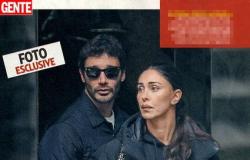The film was released in Russia on January 25 The master and Margherita, signed by Michael Lockshin, an American who grew up in Russia. Its location can be interesting and suggestive. It’s about understanding how the director handled it. The first interpretation can be translated with the term “courage”. The film is a take-no-prisoners satire, and it is not difficult to attribute it to the “Putin system”. And it is far from the so-called zeitgeist, the cultural trend that prevails in this era in Russia. With a decidedly relevant fact: when Lockshin made the film, Moscow had not yet invaded Ukraine. And then, another almost disconcerting anomaly, The master and Margherita it was seen by five million Russians, for a gross of 2 billion rubles which means 22 million dollars.
In short, there is some mystery. But “mystery” is a lemma that has always become “fond” of Mikail Bulgakov’s text. It’s one of those novels that in your youthful, vulnerable age, it was compulsory to read due to scientific-cultural-academic imposition, otherwise you were looked at badly. Just as you had to read Proust’s “Recherche”, Kafka’s “The Metamorphosis”, Mann’s “The Magic Mountain”, above all Joyce’s “Ulysses”. Then there were the Americans, but those were also funny, not they mattered.
There is no doubt that Bulgakov’s book presents infinite, living symbols and content. As if it possessed its own conscience with relative hiddenness, therefore very difficult to interpret at all.
The story develops on different levels. We are in the 1930s, Volland Satan appears in Moscow and shocks the city. In contrast, the writer reinvents the relationship between Jesus and Pilate. Therefore the symbols are complex and difficult to decipher as they have to deal with visionary, metaphysical registers and moments reinvented according to the social, real and mystical indication that Bulgakov intends to convey. The awareness of artistic creation and the vision of the world that derives from it is important. A decisive quote, even a deeply personal one, is Goethe’s “Faust”, with its indication of good and evil, of the mystery of the afterlife. Some scenarios, dear to the author, are the theatrical and literary environments that live on injustice and factionalism. The Master embodies all of this. He is locked up in a mental hospital and freed thanks to the intervention of Margherita, the woman he loves and who must pay a very high price, becoming a witch and accepting Satan’s conditions. The ideal goal, in such a complex and studied subject, would be good. It would be the salvation of man.
So how much research to translate and how many mysteries to take on in the hope of understanding them: all this is “The Master and Margherita”. Something really very, very difficult for cinema to approach. There was a movie of 1972, directed by Aleksandar Petrovic, with Ugo Tognazzi. He did not touch, not even from afar, the mysterious quality of the literary master.
I have not seen the film of Lockshin, I inquired and noted that the director has an ultra-personal vocation, he loves to resolve texts in his own image and likeness. Being someone like Bulgakov, therefore visionary in the face of visionary, I’m really curious about the result. However, the data is good and beautiful: “The master and Margherita” always exists.
The Russian people therefore appreciated and shared. And the others, the “technicians”?
Vladimir Solovyov, Putin’s propaganda chief thundered: “How was a Russophobic American allowed to make this film which is nothing but unpatriotic rubbish?” Yegor Kholmogorov of the “Russia Today” broadcaster described the film “as a demonstration of terrorist and satanic propaganda conceived by a Ukraine fan.” The controversy also involved the Duma where many deputies asked that the film be suspended.”
These are the obvious and natural voices of the regime. But I allow myself a personal consideration. We know well how Vladimir Putin controls everything and everyone. However, in this case he personally abstained and let his “entourage” express themselves. Perhaps he wanted him to pass on this concept: “As you can see, I respect art and its free expression, even if it expresses itself against me.”
Who knows if this reading is correct. It would be nice. Very.
Tags: master Margherita book lives





